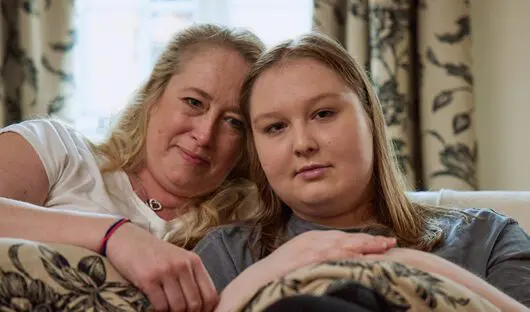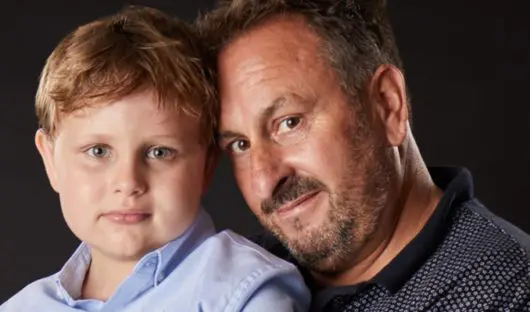Managing money tips
It’s easy to get into debt when you’re dealing with all the extra costs a cancer diagnosis brings. Getting a handle on debt is stressful - granted. But turning a blind eye won’t do you any favours... it’ll probably make things worse. Check out our guide to help you kick debt where it hurts. Your future self will thank you for it.

If your debt feels like too much to handle, it’s time to face it head on and accept it’s a problem. Have a chat about it with someone you trust or a debt counsellor. It’ll be a weight of your shoulders. Head here to find a counsellor near you.
Suss out exactly how much you owe and to who you owe it. Pull together reminder letters, loan agreements and statements to help you keep track. You could start a list or a spreadsheet…
Urgent court papers or letters need to be tackled first, and the sooner the better. If you don’t then your creditors won’t know you’re struggling and will assume you don’t plan to pay. This could mean a court order giving bailiffs permission to take your goods. Head to section six to find out more about priority debts and how to tackle them.
Manage your cash and reduce your outgoings by creating a budget. You can find lots of budget planners online to help you do this, including this one from the Money Advice Service. Taking control will help you see where your money is going and can be a handy tool when contacting your creditors.
As a cancer patient, you could apply for Personal Independence Payment (PIP), or Adult Disability Payment in Scotland, to help cover the extra costs cancer brings. You could be entitled to other benefits too. Young Lives vs Cancer’s Welfare Advice Service can do a full financial check for you and answer any questions you might have.
Intimidating calls, threatening letters and unwanted bills. We get why speaking to these guys may be the last thing you want to do. But it’ll be worth it. Creditors are often keen to work with your to help repay your debt. Honesty is the best policy when explaining your situation too.
Remember… creditors can’t bombard you with calls or threaten you with legal action. They would be breaking the law. If this happens, get in touch with nearest your Citizens Advice for help and support.
They also can’t pressure you to pay off large amounts in one go or tell someone in your family about your debts. Just pick up the phone and talk to them before the situation escalates.
Ask your creditors to explain what type of agreement you have, the balance owing, terms or repayment and interest or penalties, your debts and any insurance policy attached to the agreement.
Do:
- Ask them if they can freeze any interest on your debts
- Ask them if they will agree to you paying a smaller amount over a set period of time (although this will affect your future credit rating)
- Get any agreements in writing and keep a copy of any letters or emails you’ve received or sent
- Try offering your creditors a full and final settlement where you pay a lump-sum instead of the full balance you owe on the debt. In return, the creditor agrees to write off the rest of the debt.
Don’t:
- Give away your account details and reference details to anyone other than the creditors
- Agree to pay an amount that isn’t realistic and that you can’t afford. Use your budget as a guide
- Hand your property keys back to the lender
- Send any payment before it’s agreed (especially in terms of a full and final settlement)
- Borrow more money, known as debt consolidation loans – they may help you in the short-term, but could end up getting you into more serious debt.
Some debts are more urgent than others and should be paid off first (aka priority debts). Not paying these off could have serious consequences, like losing your home or having your gas or electricity cut off. Priority debts include:
- Mortgage
- Rent
- Council Tax
- Gas and electricity (not water, as this can’t be cut off for non-payment of bills)
- Court fines
- Child Maintenance
- TV Licence
- Income Tax, National Insurance and VAT.
Non-priority debts include:
- Credit card debts (including overdrafts, loans, hire purchase, credit card and catalogues)
- Benefit overpayments
- Overdrafts
- Local authority parking fines
- Water and sewage charges
- Other loans (including student loans)
- Money borrowed from friends and family.
It’s also time to decide how each debt is going to affect your life. If you need your car to get to treatment, sort out any repayments as a priority. Add these to your list of urgent debts.
For more information about priority debts head to the Money Advice Service.
If you do have to go to court don’t miss your hearing unless you have a very good reason for doing so. Bring your financial statement and copies of relevant letters along with you.
If you can’t make a hearing because you have planned treatment or aren’t well enough, you need to let the court know ASAP. This way you can be excused and another date will be organised.
You can get more information and advice from the following organisations:
- Contact your local Citizens Advice
- Call National Debtline on 0808 808 4000
- Call Step Change Debt Charity on 0800 138 1111.


